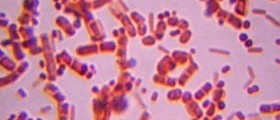Loading...
Commonly prescribed antibiotics
In the United States, most doctors prescribe ciprofloxacin for nonpregnant adults. Women who are pregnant and children most often receive ceftriaxone (Rocephin) injections, because ciprofloxacin has been associated with problems in these groups. All of these drugs can cause side effects, and long-term use can lead to the development of antibiotic-resistant strains of bacteria.
Problems with antibiotic resistance
In the past, the drug of choice was chloramphenicol. Doctors no longer commonly use it, however, because of severe side effects, a high relapse rate and widespread bacterial resistance. In fact, the existence of antibiotic-resistant bacteria is a growing problem in the treatment of typhoid, especially in the developing world. In recent years, S. typhi also has proved resistant to trimethoprim-sulfamethoxazole and ampicillin.
One study found that while pregnancy is a risk factor for and effects typhoid disease expression, typhoid fever does not appear to affect pregnancy outcome.
Another study found typhoid fever in pregnancy may result in infection of the fetus, with consequent abortion. Currently, it is a rare complication of pregnancy in the industrially developed countries.
Supportive therapy
Other treatment steps aimed at managing typhoid symptoms include:
Drinking fluids. This helps prevent the dehydration that results from a prolonged fever and diarrhea. If you're severely dehydrated, you may need to receive fluids through a vein in your arm (intravenously).
Eating a healthy diet. Nonbulky, high-calorie meals can help replace the nutrients you lose when you're sick.
Loading...
The relationship between pregnancy and typhoid fever is not well defined. The objective of this study was twofold: to assess the effect of the pregnant and postpartum host on typhoid disease expression, and to explore the relationship between typhoid fever and pregnancy outcome.
Methods
Over an 11-year period, all 181 adult women with blood culture-confirmed typhoid fever admitted to a university hospital in Karachi, Pakistan were studied; those with pregnancy-related disease were compared to the non-pregnant women. The relationship between typhoid fever and pregnancy outcome was evaluated by comparing 80 pregnant women with typhoid, with 194 randomly selected pregnant women without typhoid who were matched for age and study year.
Results
In adult females with bacteremic typhoid disease, a significant proportion was pregnancy-related (47%). These women were less likely to have other co-morbid illnesses (2% vs. 27%, p < 0.001) and were almost exclusively treated with ampicillin/amoxicillin or third-generation cephalosporins, while the non-pregnant women with typhoid fever preferentially received quinolones. The mean duration of antimicrobial therapy was similar in both groups (14 days) but the non-pregnant group defervesced earlier (4.2 days vs. 5.6 days, p = 0.011). Complications of typhoid fever were significantly more likely in the non-pregnant group (23% vs. 8%, p = 0.005) and primarily involved lower gastrointestinal bleeding. On comparing the pregnant women with typhoid with randomly selected age-matched pregnant women without typhoid, there were no apparent effects of typhoid fever on pregnancy outcome as measured by gestational age at delivery, pregnancy complications, modes of delivery, neonate gender, birth weight, or birth Apgar scores.
Conclusions
While pregnancy is a risk factor for and effects typhoid disease expression, typhoid fever does not appear to affect pregnancy outcome.
Loading...
















